
Lansdowne, PA
(610) 626-3338

Lansdowne, PA
(610) 626-3338
Foot pr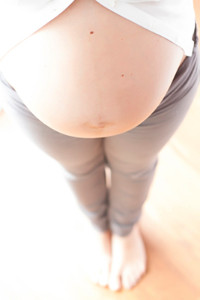 oblems during pregnancy are a generally common albeit potentially painful and uncomfortable occurrence. Both swollen legs and feet are common in late pregnancy. This swelling stems from too much fluid in the veins leaking into nearby tissue in the legs and feet. This swelling can lead to a throbbing and painful sensation. Ways to potentially avoid or mitigate this include raising your feet up whenever possible, staying active and exercising, not crossing your legs, and seeing a podiatrist who can monitor your feet. Don't be shocked if your feet swell and cause them to become too large for your shoes; if this occurs, find shoes that fit properly, support your feet, and are comfortable. Podiatrists are an excellent source of information if you have concerns about your feet while pregnant. They can provide individually suited medical advice and care for any foot-related problems stemming from pregnancy.
oblems during pregnancy are a generally common albeit potentially painful and uncomfortable occurrence. Both swollen legs and feet are common in late pregnancy. This swelling stems from too much fluid in the veins leaking into nearby tissue in the legs and feet. This swelling can lead to a throbbing and painful sensation. Ways to potentially avoid or mitigate this include raising your feet up whenever possible, staying active and exercising, not crossing your legs, and seeing a podiatrist who can monitor your feet. Don't be shocked if your feet swell and cause them to become too large for your shoes; if this occurs, find shoes that fit properly, support your feet, and are comfortable. Podiatrists are an excellent source of information if you have concerns about your feet while pregnant. They can provide individually suited medical advice and care for any foot-related problems stemming from pregnancy.
Pregnant women with swollen feet can be treated with a variety of different methods that are readily available. For more information about other cures for swollen feet during pregnancy, consult with Dr. George Yarnell from Pennsylvania. Our doctor will attend to all of your foot and ankle needs.
What Foot Problems Can Arise During Pregnancy?
One problem that can occur is overpronation, which occurs when the arch of the foot flattens and tends to roll inward. This can cause pain and discomfort in your heels while you’re walking or even just standing up, trying to support your baby.
Another problem is edema, or swelling in the extremities. This often affects the feet during pregnancy but tends to occur in the later stages.
How Can I Keep My Feet Healthy During Pregnancy?
If you have any questions please feel free to contact our office located in Lansdowne, PA . We offer the newest diagnostic and treatment technologies for all your foot and ankle needs.
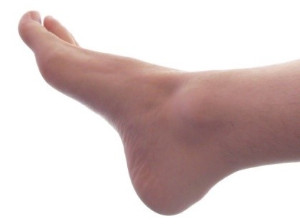 Our feet are an essential part of our bodies, and it’s important to remember to keep an eye out for possible problems. Muscle spasms and foot cramps can be a sign of dehydration so be sure to stay hydrated, especially during periods of physical activity. Gout, a form of arthritis, can cause the big toe joint to become inflamed; this can cause pain. It is best to see a podiatrist for diagnosis and treatment for gout. If your feet are cold, this can be from poor blood circulation; this could possibly stem from diabetes, anemia, or hypothyroidism. Swollen feet can occur while pregnant or be caused by poor circulation from a blood clot, lymphatic buildup, or cellulitis. If you are experiencing nerve loss or a pins and needles sensation in your feet, you could be experiencing neuropathy; this can be caused by diabetes. Once again it is best to see a podiatrist if you have any of these symptoms. Finally, colored toenails can be a sign of psoriasis or toenail fungus. There are topical creams for toenail fungus; but once again, a podiatrist can offer better treatment options and a more thorough diagnosis.
Our feet are an essential part of our bodies, and it’s important to remember to keep an eye out for possible problems. Muscle spasms and foot cramps can be a sign of dehydration so be sure to stay hydrated, especially during periods of physical activity. Gout, a form of arthritis, can cause the big toe joint to become inflamed; this can cause pain. It is best to see a podiatrist for diagnosis and treatment for gout. If your feet are cold, this can be from poor blood circulation; this could possibly stem from diabetes, anemia, or hypothyroidism. Swollen feet can occur while pregnant or be caused by poor circulation from a blood clot, lymphatic buildup, or cellulitis. If you are experiencing nerve loss or a pins and needles sensation in your feet, you could be experiencing neuropathy; this can be caused by diabetes. Once again it is best to see a podiatrist if you have any of these symptoms. Finally, colored toenails can be a sign of psoriasis or toenail fungus. There are topical creams for toenail fungus; but once again, a podiatrist can offer better treatment options and a more thorough diagnosis.
Everyday foot care is very important to prevent infection and other foot ailments. If you need your feet checked, contact Dr. George Yarnell from Pennsylvania. Our doctor can provide the care you need to keep you pain-free and on your feet.
Everyday Foot Care
Often, people take care of their bodies, face and hair more so than they do for their feet. But the feet are a very important aspect of our bodies, and one that we should pay more attention to. Without our feet, we would not be able to perform most daily tasks.
It is best to check your feet regularly to make sure there are no new bruises or cuts that you may not have noticed before. For dry feet, moisturizer can easily be a remedy and can be applied as often as necessary to the affected areas. Wearing shoes that fit well can also help you maintain good foot health, as well as making it easier to walk and do daily activities without the stress or pain of ill-fitting shoes, high heels, or even flip flops. Wearing clean socks with closed shoes is important to ensure that sweat and bacteria do not accumulate within the shoe. Clean socks help to prevent Athlete’s foot, fungi problems, bad odors, and can absorb sweat.
If you have any questions please feel free to contact our office located in Lansdowne, PA . We offer the newest diagnostic and treatment technologies for all your foot and ankle needs.
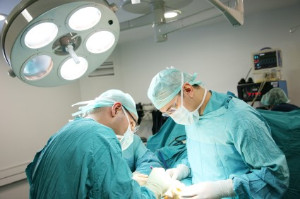 According to Giants’ coach Ben McAdoo, it's safe to say that Odell Beckham Jr. will be out for the rest of the season due to having to undergo surgery on his ankle. Beckham injured his ankle during the Giants vs Chargers game in which the Chargers won. This isn’t the first time Beckham sustained an injury to the ankle this season; he sprained his ankle during the preseason.
According to Giants’ coach Ben McAdoo, it's safe to say that Odell Beckham Jr. will be out for the rest of the season due to having to undergo surgery on his ankle. Beckham injured his ankle during the Giants vs Chargers game in which the Chargers won. This isn’t the first time Beckham sustained an injury to the ankle this season; he sprained his ankle during the preseason.
Foot surgery is sometimes necessary to treat a foot ailment. To learn more, contact Dr. George Yarnell of Pennsylvania. Our doctor will assist you with all of your foot and ankle needs.
When Is Surgery Necessary?
Foot and ankle surgery is generally reserved for cases in which less invasive, conservative procedures have failed to alleviate the problem. Some of the cases in which surgery may be necessary include:
What Types of Surgery Are There?
The type of surgery you receive will depend on the nature of the problem you have. Some of the possible surgeries include:
Benefits of Surgery
Although surgery is usually a last resort, it can provide more complete pain relief compared to non-surgical methods and may allow you to finally resume full activity.
Surgical techniques have also become increasingly sophisticated. Techniques like endoscopic surgery allow for smaller incisions and faster recovery times.
If you have any questions please feel free to contact our office located in Lansdowne, PA . We offer the newest diagnostic and treatment technologies for all your foot and ankle needs.
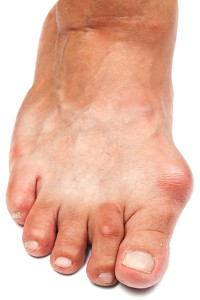 Bunions, if left untreated, can start to throb and become very painful. Does this mean that you should have surgery to treat your bunions before they start hurting? Not necessarily; there are plenty of nonsurgical options available to treat bunions and the associated pain. It is best to see a podiatrist first, however, as they can discuss the options available to you. Common conservative options include trying new pairs of shoes that offer more room and keep pressure off the bunion. Bunions pads are another readily available option that also help ease pressure on the bunion. Anti-inflammatory medication can provide temporary relief from pain and inflammation, and cortisone shots can help with that too. If conservative measures such as these do not ease pain, then surgery may be recommended by a podiatrist.
Bunions, if left untreated, can start to throb and become very painful. Does this mean that you should have surgery to treat your bunions before they start hurting? Not necessarily; there are plenty of nonsurgical options available to treat bunions and the associated pain. It is best to see a podiatrist first, however, as they can discuss the options available to you. Common conservative options include trying new pairs of shoes that offer more room and keep pressure off the bunion. Bunions pads are another readily available option that also help ease pressure on the bunion. Anti-inflammatory medication can provide temporary relief from pain and inflammation, and cortisone shots can help with that too. If conservative measures such as these do not ease pain, then surgery may be recommended by a podiatrist.
If you are suffering from bunions, contact Dr. George Yarnell of Pennsylvania. Our doctor can provide the care you need to keep you pain-free and on your feet.
What Is a Bunion?
A bunion is formed of swollen tissue or an enlargement of boney growth, usually located at the base joint of the toe that connects to the foot. The swelling occurs due to the bones in the big toe shifting inward, which impacts the other toes of the foot. This causes the area around the base of the big toe to become inflamed and painful.
Why Do Bunions Form?
Genetics – Susceptibility to bunions are often hereditary
Stress on the feet – Poorly fitted and uncomfortable footwear that places stress on feet, such as heels, can worsen existing bunions
How Are Bunions Diagnosed?
Doctors often perform two tests – blood tests and x-rays – when trying to diagnose bunions, especially in the early stages of development. Blood tests help determine if the foot pain is being caused by something else, such as arthritis, while x-rays provide a clear picture of your bone structure to your doctor.
How Are Bunions Treated?
If you have any questions, please feel free to contact our office located in Lansdowne, PA . We offer the newest diagnostic and treatment technologies for all your foot care needs.
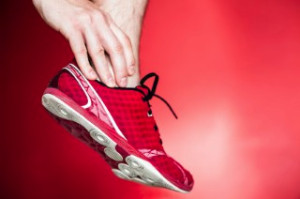 Running is a great way to stay healthy and fit, and an important aspect of running is proper footwear. Wearing the right type of footwear can help prevent injury and strain and provide a more enjoyable experience. If you are just starting out as a runner, don’t worry too much about buying expensive, high-end shoes. Instead, look for a pair that is medium-priced, provides comfort, and is roomy. When you wear a pair of shoes that do not provide a proper fit, you risk sustaining a number of injuries such as an ankle sprain or developing foot conditions such as corns, blisters, or plantar fasciitis. Furthermore, a bad pair of running shoes can make running uncomfortable and discourage you from doing it.
Running is a great way to stay healthy and fit, and an important aspect of running is proper footwear. Wearing the right type of footwear can help prevent injury and strain and provide a more enjoyable experience. If you are just starting out as a runner, don’t worry too much about buying expensive, high-end shoes. Instead, look for a pair that is medium-priced, provides comfort, and is roomy. When you wear a pair of shoes that do not provide a proper fit, you risk sustaining a number of injuries such as an ankle sprain or developing foot conditions such as corns, blisters, or plantar fasciitis. Furthermore, a bad pair of running shoes can make running uncomfortable and discourage you from doing it.
If you are a runner, wearing the right running shoe is essential. For more information, contact Dr. George Yarnell from Pennsylvania. Our doctor can provide the care you need to keep you pain-free and on your feet.
Choosing the Right Running Shoe for Your Foot Type
To increase performance and avoid the risk of injury, it is important to choose the right running shoe based on your foot type. The general design of running shoes revolves around pronation, which is how the ankle rolls from outside to inside when the foot strikes the ground.
If you have any questions please feel free to contact our office located in Lansdowne, PA . We offer the newest diagnostic and treatment technologies for all your foot and ankle needs.